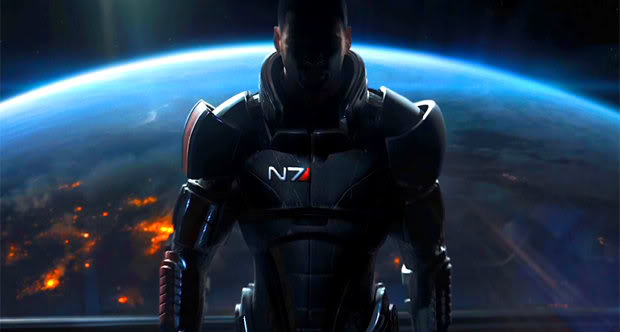The following article is mostly spoiler free.

The controversy surrounding Mass Effect 3’s ending has been a unique event in the gaming world. A passionate fanbase quickly drew battle lines, built their respective fortresses, and began lobbing boulders of discontent faster than you can scream, "Liara, take off your shirt" at your Kinect (Even though it doesn't work. Trust me, I've tried like 47 times). Thankfully, I avoided any major spoilers as I stayed out of the debate. I'm a Switzerland kind of guy; unless I catch you putting sugar in my gas tank while you insult the memory of my mama, I'm just not going to get that upset. I finished the campaign this morning, went to church, and fed my kids Lunchables. Now that I've stepped away from the game for a few hours, here's my take:
Did you like the book or the movie? In a general sense, I mean. Depending on your preferred medium, you’ll either think the ending was brilliant or a total debacle. Of course, games are neither novels or movies… so where does that leave us?
Mass Effect 3's ending is literary. It's Ernest Hemingway's "Iceberg Theory": 90% of it is beneath the surface. It's there even though it is not visible. That undercurrent pulls a weight and a mass that heavily influences its surroundings. Ol' Papa wrote to make his fictional worlds true – sometimes truer than our reality. His approach was to write as true as possible and people would be able to make their own meaning. Don't spell it all out. The reader is supposed to understand what happened because the characters are so true that their paths are clear.
Consider The War of the Worlds as an example. In the original novel, the ending works very well. Within the ebb and flow of the narrative, it makes sense. Now, jump forward to Spielberg's 2005 film adaptation. How many people left that movie (who had not read the book) thinking, "It's freakin' June… it's got Tom Cruise… aliens have humanity on the ropes… and in the end they all get #$#^%& killed by bacteria?! #$#%^ BACTERIA?!"
I'm no movie snob, but If it's the middle of summer and aliens are involved, I better see some mammoth explosions (or mammoths exploding 'cause that's pretty rad, too), and the hero better win in the end and make out with some blonde 15 years younger than him. I get that. I expect that. No worries.
That's summer movies. I'm not saying it's art. I could care less if it is. Just make the aliens go boom, let me eat my 7 gallon bucket of popcorn, and not get my Vans glued to the floor with wads of Hubba Bubba.
Novels are not the same. The reader has invested great time and intimacy into the work. The reader thinks about it as they read. They predict. They wonder. They quietly cajole the characters. They curse the villains. Through that process, many readers like to have a little to think about at the end. They have built these characters up in their minds for hundreds of pages, and few literary endings can really spell out everything a reader hopes for. The good writers give us exactly what we need and no more. Let the reader figure things out and it will make them feel engaged and vested in the work long after it has been completed.
That's how I see the end of Mass Effect. I get why some gamers are upset. They laid out their money and have their expectations, rightfully so. I would ask them to take a moment and really think about this: What ending would have worked for you? Given the grand scope of the Mass Effect series, I'm not sure it was possible for Bioware to deliver a conclusion that satisfied everyone. It's not because they are incapable, it's that we as gamers are so intimately invested in this series that we've already written the ending we love. We just need to see Commander Shepard throw it down one more time, and we can fill in the rest.
VentureBeat's mission is to be a digital town square for technical decision-makers to gain knowledge about transformative enterprise technology and transact. Learn More
